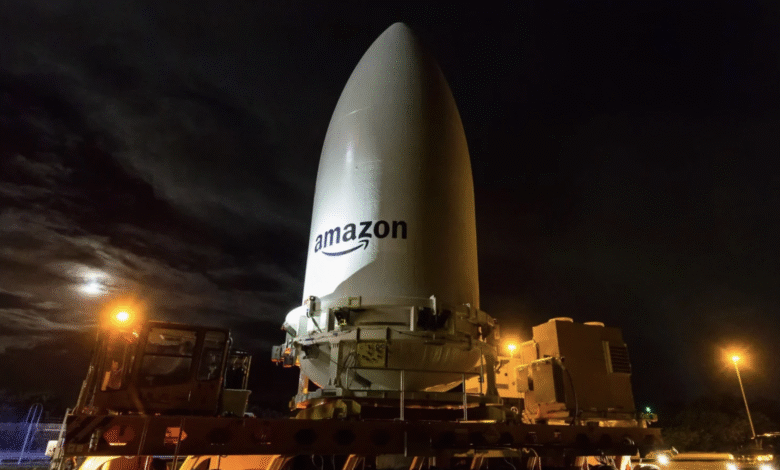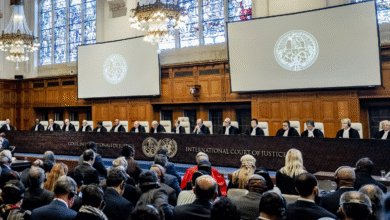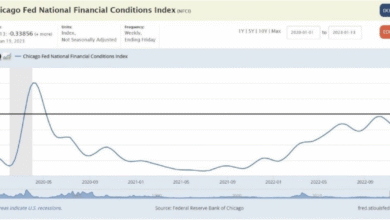Amazon Kuiper Launch Delay: ULA Rocket Booster Issue

The recent Amazon Kuiper launch delay has thrown a wrench into the company’s ambitious plans to enhance global broadband internet access. The United Launch Alliance (ULA) announced that it had to postpone the second satellite launch due to an unexpected issue with the Atlas V rocket’s booster engine. This setback is pivotal as Amazon moves forward with its Project Kuiper, which aims to deliver fast and reliable internet through a vast constellation of satellites. As competitors like SpaceX lead the satellite internet industry, Amazon’s timely deployment of its satellites is critical to meeting its objective to launch over 1,600 satellites by mid-2026. ULA has promised to update the public with a new launch date as soon as they resolve the rocket booster issue.
In a significant development within the satellite communications sector, Amazon’s Kuiper satellite launch has faced a delay, attributed to complications with the ULA rocket. This important phase in the deployment of Amazon’s broadband internet initiative has been stalled as engineers work to rectify the performance issues identified with the Atlas V rocket. The postponement comes at a crucial time for Amazon, as it seeks to compete with established players like SpaceX in providing high-speed internet from orbit. This delay underscores the challenges inherent in the satellite internet industry, where technical difficulties can hinder progress toward ambitious connectivity goals. As the world anticipates the rollout of Amazon’s satellite array, the resolution of this booster issue will be pivotal for the future of internet accessibility.
Understanding the Amazon Kuiper Launch Delay
Amazon’s Project Kuiper has faced a significant setback with the postponement of its second satellite launch due to an issue with the United Launch Alliance (ULA) rocket booster. The delay was announced only minutes before the scheduled launch, highlighting the complexities and challenges associated with launching satellites into orbit. This incident serves as a reminder of the intricacies involved in space missions, where even minor technical problems can lead to extensive delays and re-evaluations of launch schedules.
The issue identified was an elevated purge temperature within the Atlas V rocket’s booster engine, a critical component for successful liftoff. ULA’s decision to scrub the launch emphasized their commitment to safety and reliability, showcasing the importance of rigorous checks in the launch window. This delay will potentially push the timeline for Amazon’s broadband internet initiative back, as they aim to deliver high-speed internet through their expanding satellite constellation.
The Impact of ULA Rocket Booster Issues on Satellite Launches
The recent rocket booster issue faced by ULA is not an isolated incident; such challenges often confront many companies in the satellite internet industry. The Atlas V rocket, a reliable workhorse for ULA, requires precision engineering and maintenance to ensure functionality during launch operations. Problems like elevated purge temperatures not only delay launches but also necessitate thorough inspections and can impact the overall schedule of satellite deployments.
This incident could have broader implications for Amazon’s Project Kuiper, as the company aims to establish itself as a formidable player in the competitive satellite internet market. The timeline for launching its satellites is critical, given that they must deploy a significant number of them to meet regulatory deadlines. A delay in one launch can ripple through subsequent missions, potentially hindering their ability to provide broadband internet services as planned.
Project Kuiper’s Role in Revolutionizing Broadband Internet Access
Amazon’s Project Kuiper is poised to play a transformative role in the satellite internet sector, competing directly with established players like SpaceX’s Starlink. With their ambitious goal of deploying a constellation of over 3,000 satellites, Amazon aims to bridge the connectivity gap for underserved areas—an essential need in today’s digital age. The project’s successful implementation could redefine how users access broadband internet, especially in rural locations where traditional providers may not reach.
The innovative nature of Project Kuiper lies not only in its scale but also in its potential technology. By integrating advanced satellite technology, Amazon can offer high-speed internet that challenges conventional service providers. However, successful launches are indispensable for the project’s development and expansion. Delays stemming from technical issues, like the recent ULA rocket booster delay, highlight the obstacles that must be overcome to ensure timely service delivery to customers.
Competition in the Satellite Internet Industry
As Amazon advances its Project Kuiper initiative, it enters a fiercely competitive satellite internet landscape. Companies like SpaceX, backed by Elon Musk’s vision, have set high standards with Starlink’s rapid deployment and market penetration. Likewise, players such as OneWeb and Viasat are also vying for a share of the growing demand for satellite internet services. Each of these companies brings unique technology and strategies, pushing the industry towards innovation and improved service offerings.
Amazon’s challenge lies in not only launching its satellites effectively but also in scaling its operations to rival existing services. The success of Project Kuiper hinges on the ability to manage launch schedules efficiently, especially in light of recent setbacks like the ULA rocket booster issue. As the competition intensifies, Amazon must leverage its resources and technology to ensure that it meets consumer expectations and regulatory requirements in the increasingly crowded satellite internet market.
Future Prospects for Amazon’s Satellite Internet Expansion
Looking ahead, Amazon has ambitious plans to expand its broadband internet offerings through Project Kuiper, buoyed by the recent successful launch of 27 satellites in low Earth orbit. To meet its goal of providing widespread internet access by 2026, the company must overcome the operational challenges that come with launching its satellites. The recent launch delays serve as a reminder of the unpredictable nature of space missions and the need for strategic foresight.
Additionally, as Amazon gears up for upcoming launches, it has the chance to innovate further in satellite technology. The lessons learned from the ULA rocket booster delay can inform future missions and lead to enhancements in system reliability. Continued progress in satellite deployment will not only benefit Amazon but can also contribute significantly to fulfilling the long-term needs of users seeking reliable and high-speed internet access worldwide.
Navigating Regulatory Challenges in Satellite Launches
Amazon’s venture into the satellite internet landscape is not just a technical undertaking; it also involves navigating a complex web of regulatory challenges. The Federal Communications Commission (FCC) stipulates strict guidelines that must be adhered to, particularly concerning the projected launch of half of its total satellite constellation by July 2026. Such regulations are designed to ensure that companies like Amazon can responsibly manage their satellite networks without causing undue interference with existing services.
The recent launch delay due to the ULA rocket booster issue adds another layer of complexity to these regulatory challenges. As Amazon works to coordinate future launches, it must keep regulatory commitments in mind to avoid potential penalties or complications that could arise from delays. Efficiently managing these aspects will be vital for Amazon to maintain momentum and meet the goals set forth by the FCC, ensuring that its vision for Project Kuiper comes to fruition.
Lessons from Previous Satellite Launch Delays
The postponement of Amazon’s second satellite launch serves as a stark reminder of the potential pitfalls associated with ambitious space projects. Historical data indicates that delays are not uncommon in the satellite launch industry, often stemming from technical challenges, such as those faced by ULA recently. Learning from past experiences can help companies refine their launch protocols and implement more robust contingency plans.
Analyzing previous incidents provides invaluable insights into how best to prepare for and mitigate risks associated with satellite launches. Each delay presents an opportunity to adjust strategies and improve engineering practices. As Amazon moves forward with its Project Kuiper initiative, leveraging lessons from these setbacks could enhance their planning and help ensure that future launches are executed successfully and on schedule.
Technological Innovations Driving Satellite Internet Solutions
Innovation stands at the core of Amazon’s Project Kuiper initiative. As the company ventures deeper into the satellite internet space, it aims to utilize cutting-edge technologies that can ensure consistent broadband services for users across varied geographical locations. This drive for innovation is essential, especially as Amazon seeks to differentiate itself in an already competitive marketplace, heavily influenced by established players like SpaceX and their Starlink service.
Technological advancements not only promise to improve service quality but also facilitate quicker deployment of satellites. Therefore, despite setbacks such as the recent ULA rocket booster issue, Amazon’s commitment to incorporating state-of-the-art solutions can expedite their ability to serve customers effectively. This proactive approach could ultimately lead to a more reliable satellite internet service option for individuals and businesses seeking robust connectivity.
The Broader Impact of Amazon Kuiper on Internet Accessibility
The successful launch and operation of Amazon’s Project Kuiper could profoundly influence internet accessibility worldwide. With a target of providing high-speed internet to remote and underserved regions, Amazon represents a transformative force in the global push for equitable internet access. This initiative has the potential to revolutionize how individuals and communities connect, access information, and participate in the digital economy.
Moreover, the competitive dynamics introduced by Project Kuiper can incentivize existing providers to enhance their offerings, pushing the satellite internet industry towards greater innovation and improvement. In the long run, Amazon’s efforts can contribute to raising the standards of connectivity standards and drive broader initiatives aimed at closing the digital divide, fostering economic development, and ensuring that more people benefit from digital services.
Frequently Asked Questions
What caused the Amazon Kuiper launch delay?
The Amazon Kuiper launch was delayed due to a problem with the United Launch Alliance (ULA) Atlas V rocket’s booster engine, specifically an issue with an elevated purge temperature that could not be resolved in time before the countdown.
When will the Amazon Kuiper satellite launch take place after the delay?
A new launch date for the Amazon Kuiper satellite launch has not been announced yet. United Launch Alliance (ULA) has stated it will provide an updated schedule once the issue with the rocket booster has been resolved.
How does the Amazon Kuiper launch delay affect broadband internet plans?
The Amazon Kuiper launch delay impacts the timeline for Amazon’s broadband internet service, which aims to provide high-speed satellite internet. The second launch, planned to deploy 27 additional satellites, is crucial to expanding the satellite constellation to meet delivery commitments for users later this year.
What is the significance of the Amazon Kuiper project in the satellite internet industry?
Amazon Kuiper is significant in the satellite internet industry as it represents a major investment in delivering broadband internet through a constellation of satellites. Competing with established players like SpaceX’s Starlink, Amazon aims to deploy over 3,000 satellites to provide widespread internet access.
What steps are being taken after the ULA rocket booster issue affecting the Kuiper satellite launch?
Following the ULA rocket booster issue that caused the Kuiper satellite launch delay, ULA is investigating the cause of the elevated purge temperature and will communicate updates on the resolution and the new launch schedule as soon as possible.
How many satellites are involved in the upcoming Amazon Kuiper launch?
The upcoming Amazon Kuiper launch is set to deploy another 27 satellites into low Earth orbit, which will increase the total number of Kuiper satellites in orbit to 54.
What is the deadline for Amazon to launch its Kuiper satellites?
Amazon must meet a Federal Communications Commission (FCC) deadline to launch at least half of its planned satellite constellation, which is 1,618 satellites, by July 2026.
How did the ULA Atlas V rocket delay affect previous Kuiper satellite launches?
The ULA Atlas V rocket delay did not directly affect previous Kuiper satellite launches, as Amazon successfully launched 27 satellites in April. However, this delay impacts subsequent deployments that are critical for achieving the operational capacity needed for Amazon’s broadband internet service.
| Key Point | Details |
|---|---|
| Launch Postponement | Amazon Kuiper’s second satellite launch has been postponed by United Launch Alliance (ULA) due to a rocket booster issue. |
| Reason for Delay | The postponement is due to ‘an elevated purge temperature’ in the Atlas V rocket’s booster engine. |
| Launch Rescheduling | A new launch date will be announced later; the launch was initially rescheduled from last Friday due to inclement weather. |
| Industry Context | Amazon aims to launch over 3,000 satellites to provide broadband internet, competing with SpaceX’s Starlink and others in the satellite internet sector. |
| Current Status | April saw the successful launch of 27 Kuiper satellites, with plans to launch an additional 27 to reach a total of 54. |
Summary
The Amazon Kuiper launch delay has significant implications for the company’s plans to provide broadband internet services via satellite. The postponement by United Launch Alliance (ULA) highlights the challenges in launching complex aerospace missions. As Amazon seeks to expand its satellite constellation to compete in the growing satellite internet market, this delay may impact their timeline to meet the Federal Communications Commission’s launch requirements.



